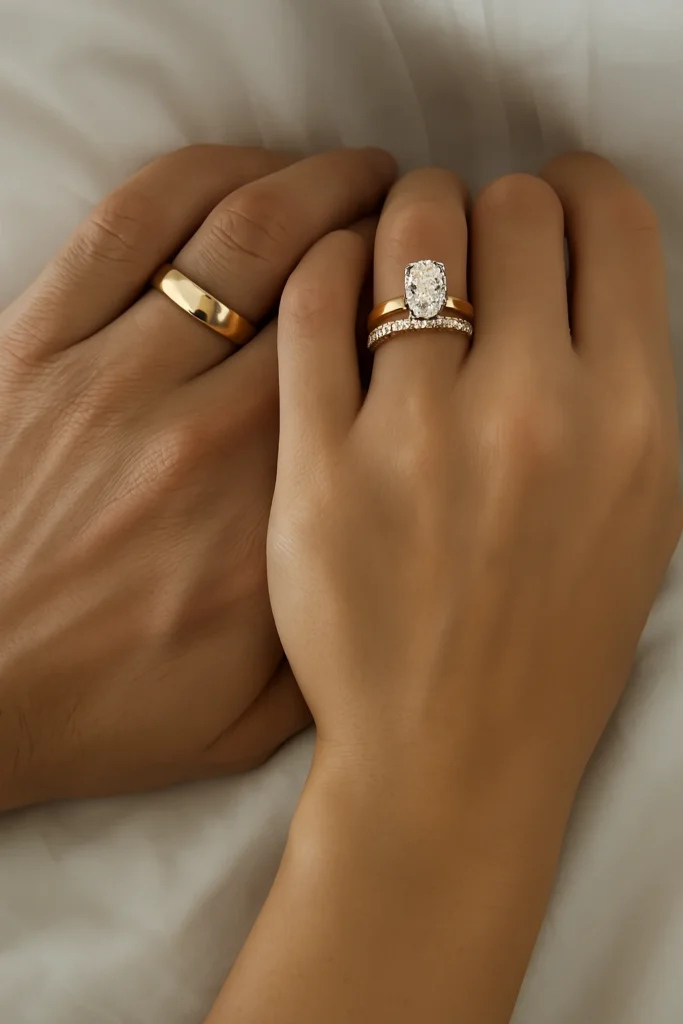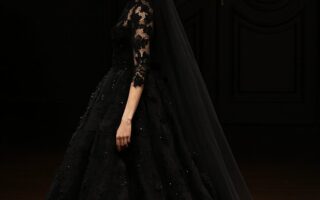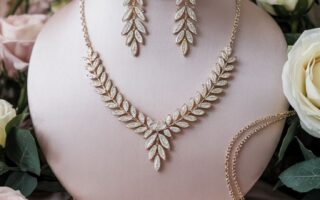Wedding rings are more than just accessories—they are powerful symbols of commitment, unity, and everlasting love. From classic gold bands to modern gemstone designs, choosing the perfect ring is a major milestone for every couple. Whether you’re shopping for matching bands, designing something custom, or exploring alternative materials, this comprehensive guide will help you navigate every detail of selecting the ideal wedding ring.
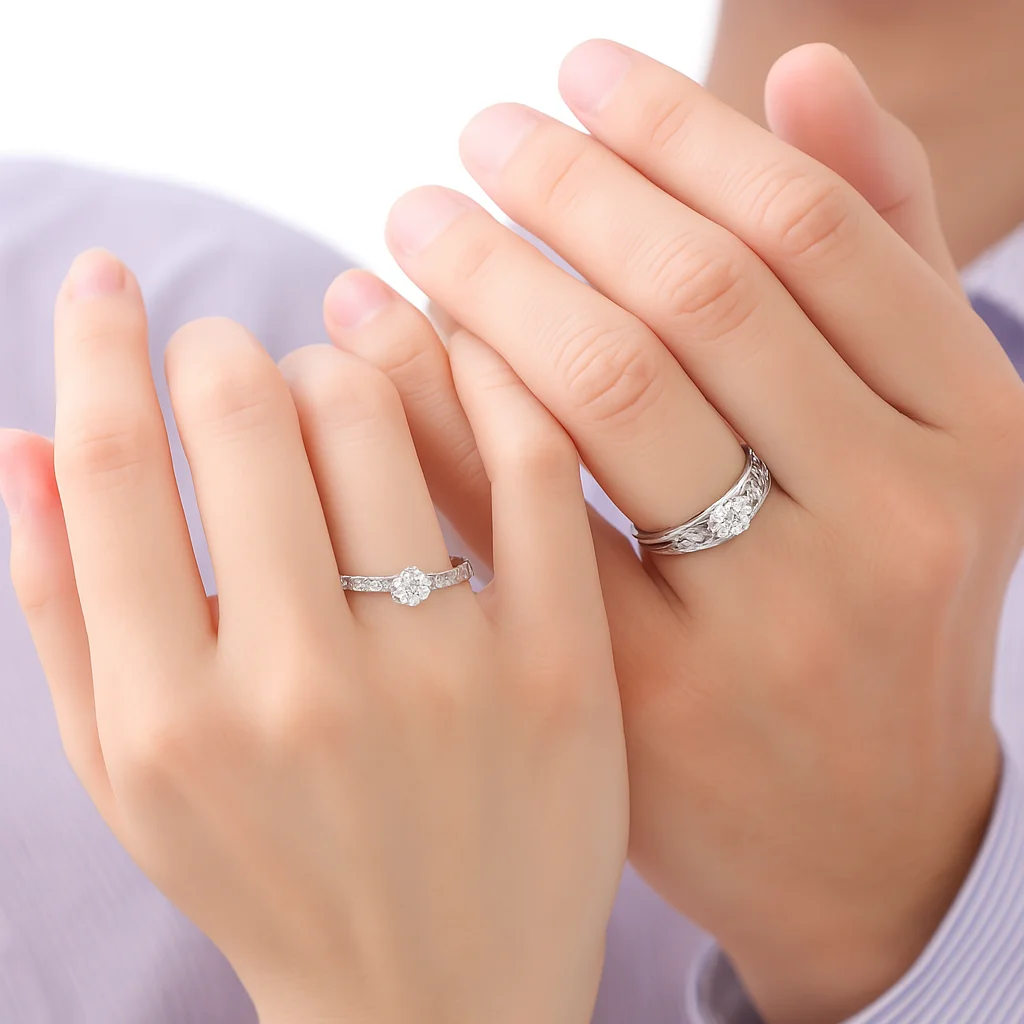
The Meaning Behind Wedding Rings
Wedding rings have been worn for centuries as a visible sign of eternal love. The circular shape symbolizes infinity, while the placement on the fourth finger of the left hand—believed to house the “vena amoris” or “vein of love”—adds to the romantic tradition.
Today, wedding rings serve as a daily reminder of your vows and shared journey. For many couples, choosing the right ring is just as important as the proposal itself.
Types of Wedding Rings
1. Classic Wedding Bands
Simple and timeless, these plain metal rings are a traditional choice. Common styles include:
- Rounded (D-shape) – curved on the outside, flat inside.
- Flat Band – modern and minimalistic with a sleek silhouette.
- Court Shape – gently curved inside and out for comfort.
💡 Best For: Minimalists or those who value tradition.
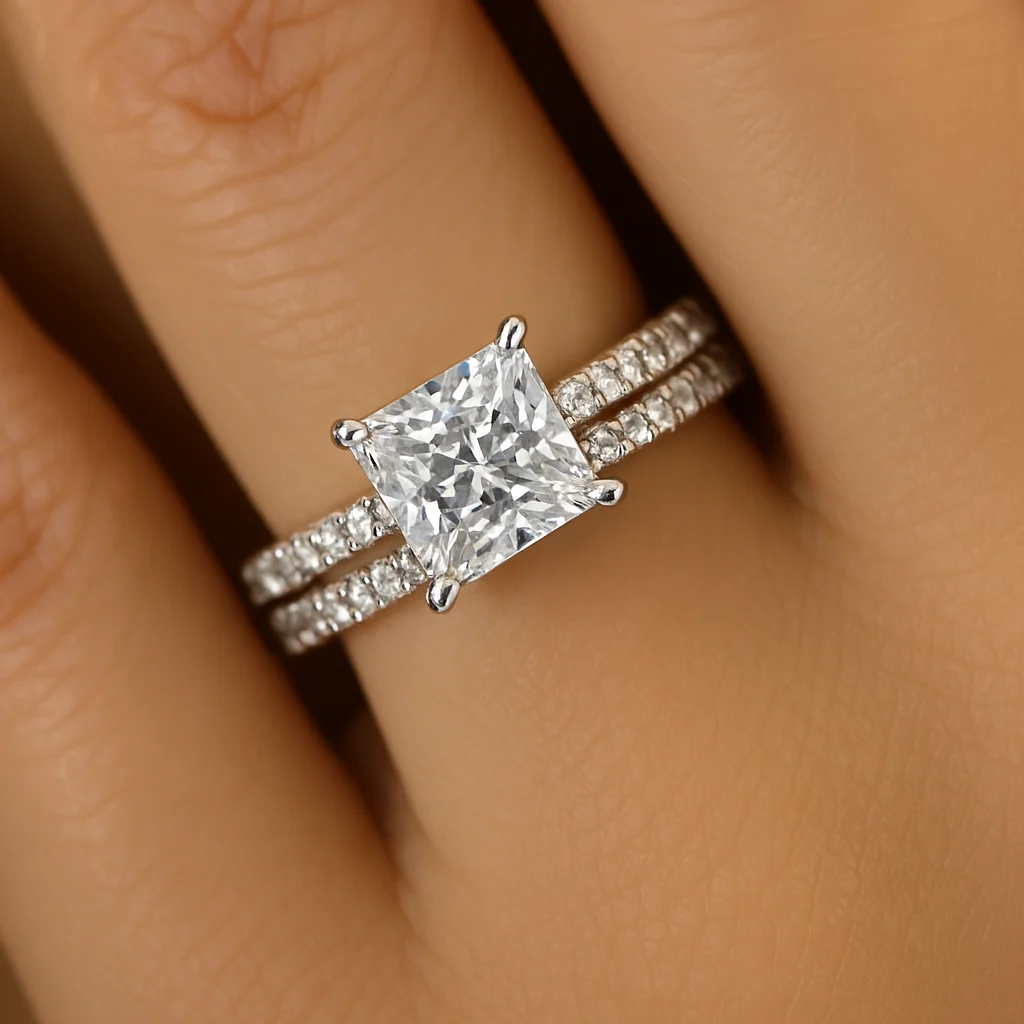
2. Diamond Wedding Bands
2. Diamond Wedding Bands
For added sparkle, diamond-studded rings are popular—especially for brides. You can choose from:
- Eternity Bands – diamonds go all the way around.
- Half-Eternity – stones set on the top half of the band.
- Channel Set – stones set into the band for a flush look.
- Pavé – tiny diamonds set close together for a glittering effect.
💡 Best For: Those who want glamour, elegance, or to match an engagement ring.
3. Stackable Rings
Perfect for adding layers over time—such as anniversary rings or birthstone bands. You can mix metals and styles for a unique look.
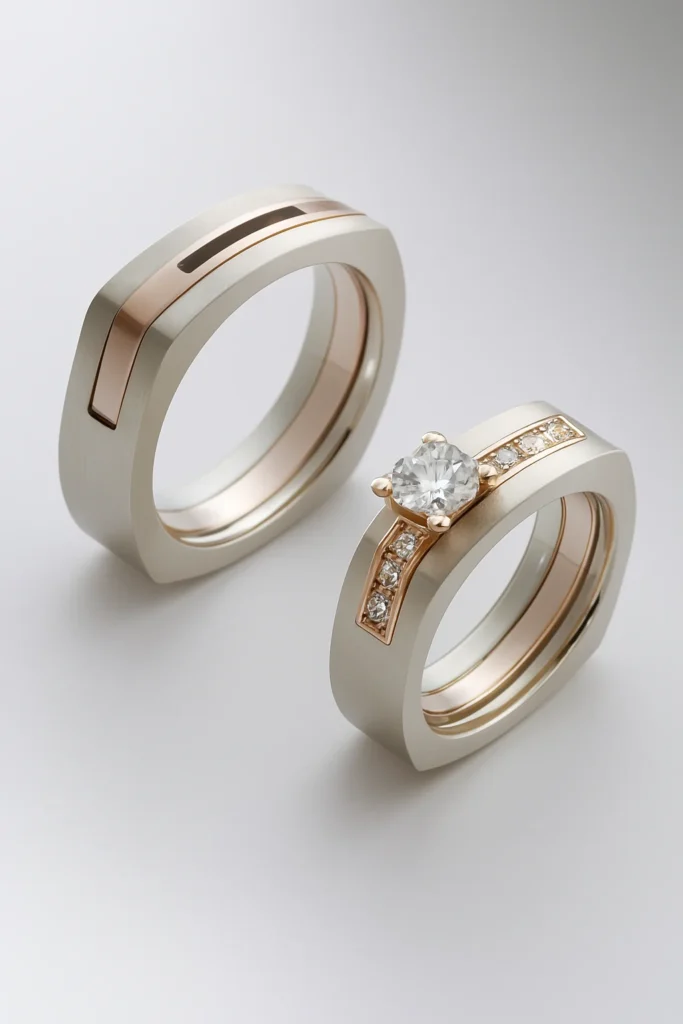
4. Custom & Engraved Rings
Make your ring more meaningful with personalized engravings such as:
- Your wedding date
- A short quote or phrase
- Your partner’s initials or heartbeat
Custom designs also allow couples to choose unique shapes, patterns, or cultural motifs.
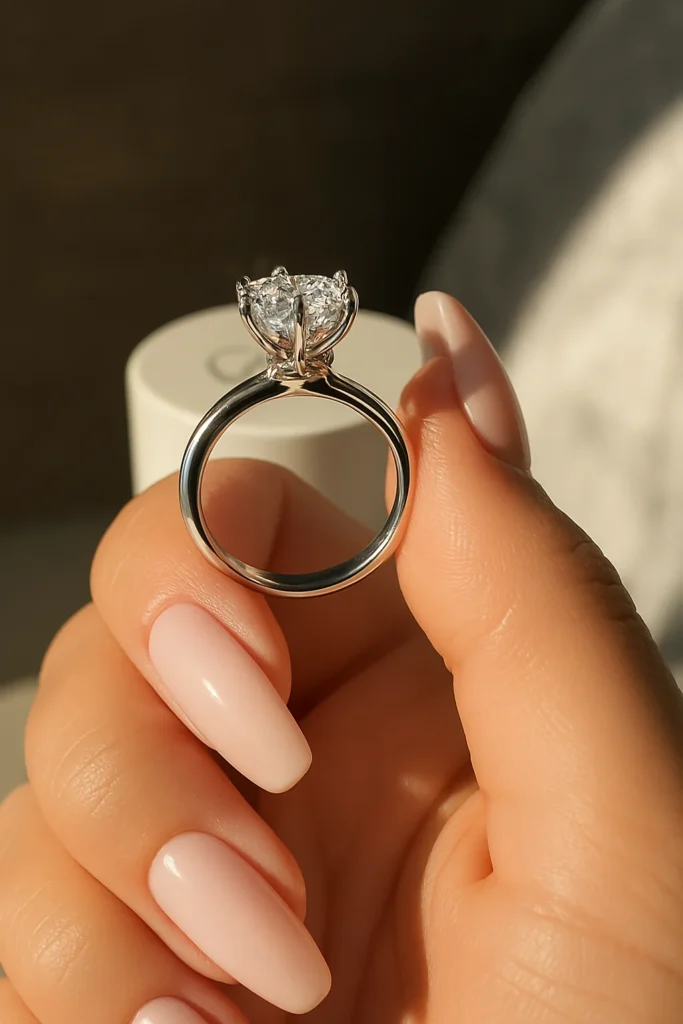
5. Alternative Metal Bands
Traditional metals like gold and platinum aren’t the only options. Modern alternatives include:
- Tungsten – scratch-resistant, durable, and heavy
- Titanium – lightweight, strong, and hypoallergenic
- Cobalt Chrome – bright white shine, similar to platinum
- Zirconium – black or dark gray for a bold look
- Ceramic – sleek, non-metallic, and scratch-resistant
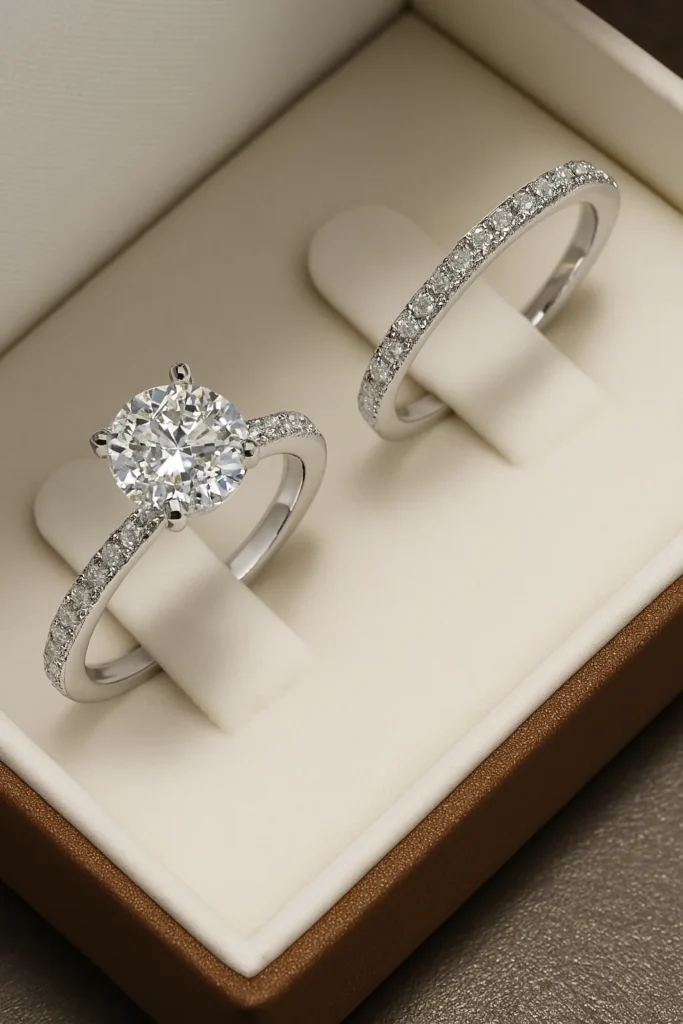
Popular Wedding Ring Materials
| Metal | Pros | Cons |
|---|---|---|
| Yellow Gold | Classic, warm tone, easy to resize | Scratches easily, requires upkeep |
| White Gold | Bright shine, popular with diamonds | Needs rhodium plating over time |
| Rose Gold | Romantic pink hue, vintage feel | Less common for men |
| Platinum | Hypoallergenic, naturally white, very durable | More expensive and heavier |
| Palladium | Similar to platinum, lightweight | Higher cost, less availability |
Wedding Ring Styles for Men
Modern grooms have more options than ever. Some trending men’s wedding band styles include:
- Textured Bands – brushed, hammered, or matte finishes
- Two-Tone Rings – a mix of metals like rose gold and black zirconium
- Inlay Designs – wood, meteorite, carbon fiber, or gemstone inlays
- Signet Rings – personalized with initials, crests, or symbols
💡 Tip: Consider width, weight, and comfort fit when choosing men’s bands.
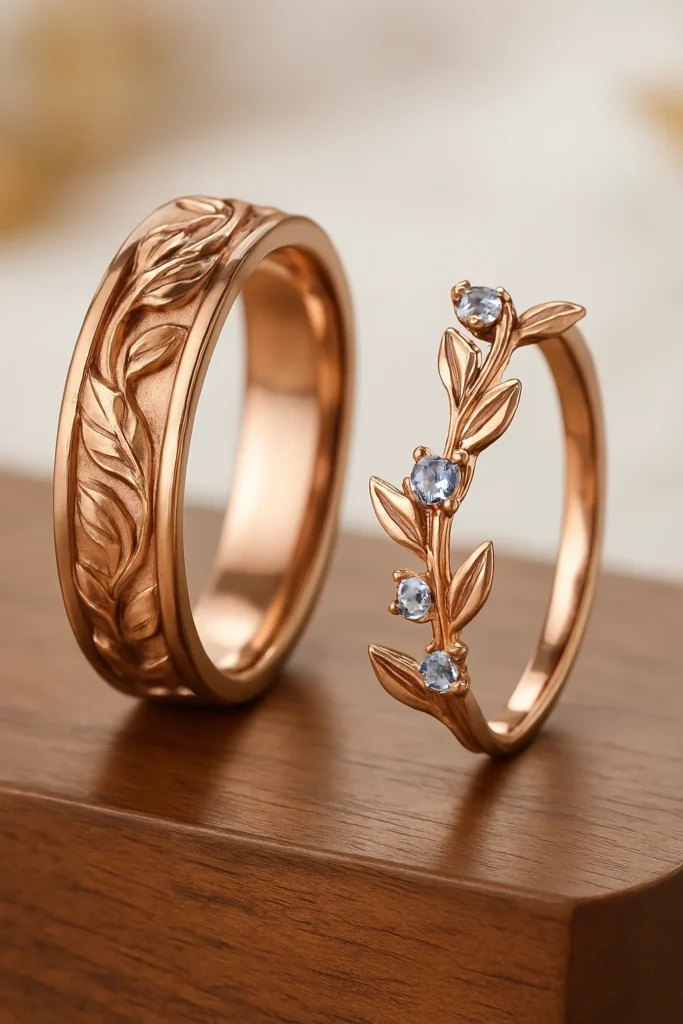
Matching vs. Individual Rings
You don’t have to match if it doesn’t suit your style. Some couples opt for matching metals or coordinated engravings, while others express individuality with totally different designs.
Matching Rings:
✔ Symbolize unity
✔ Easier to decide together
Non-Matching Rings:
✔ Reflect personal style
✔ More freedom in choice
Wedding Ring Shopping Tips
1. Set a Budget
Wedding rings typically cost anywhere from $500 to $5,000+, depending on metal, stones, and customization.
2. Start Early
Begin your search at least 2–3 months before the wedding to allow time for sizing, engraving, or custom orders.
3. Consider Your Lifestyle
If you work with your hands or live an active lifestyle, opt for durable metals and simpler designs.
4. Try Multiple Fits
Comfort-fit bands are rounded inside for a better feel. Try different widths and shapes to see what feels right.
5. Get the Right Size
Make sure the ring fits snugly but comfortably. Finger sizes can change due to weather or time of day.
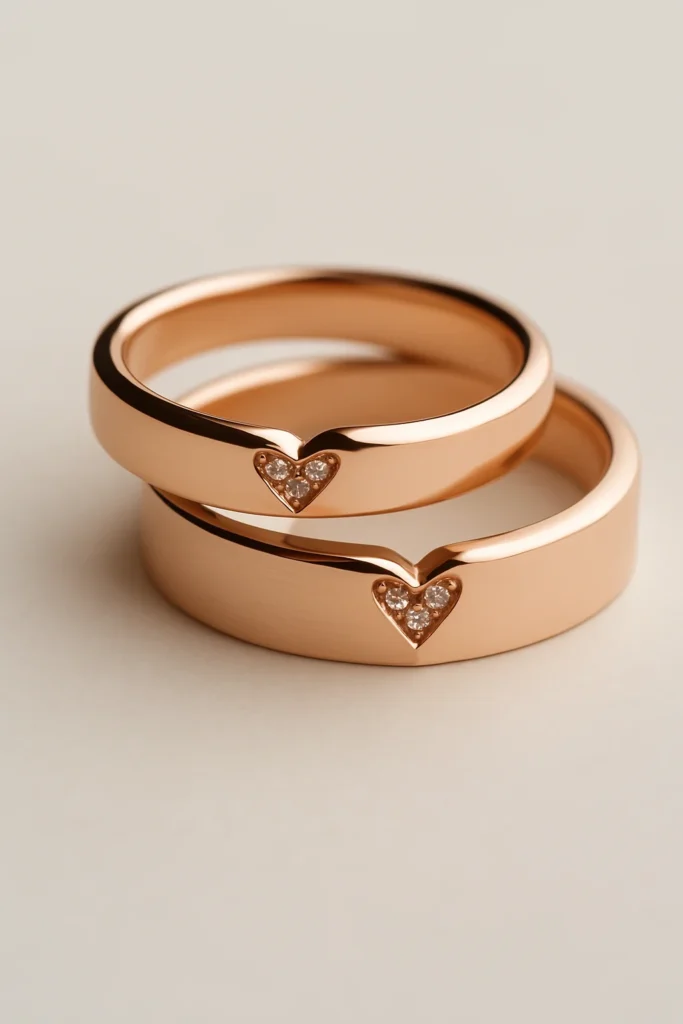
Caring for Your Wedding Rings
- Regular Cleaning: Use mild soap and a soft brush to clean at home.
- Annual Checkups: Jewelers can check for loose stones or wear.
- Remove When Necessary: Take off your ring during workouts, swimming, or using harsh chemicals.
💡 Pro Tip: Consider insuring your wedding rings to protect your investment.
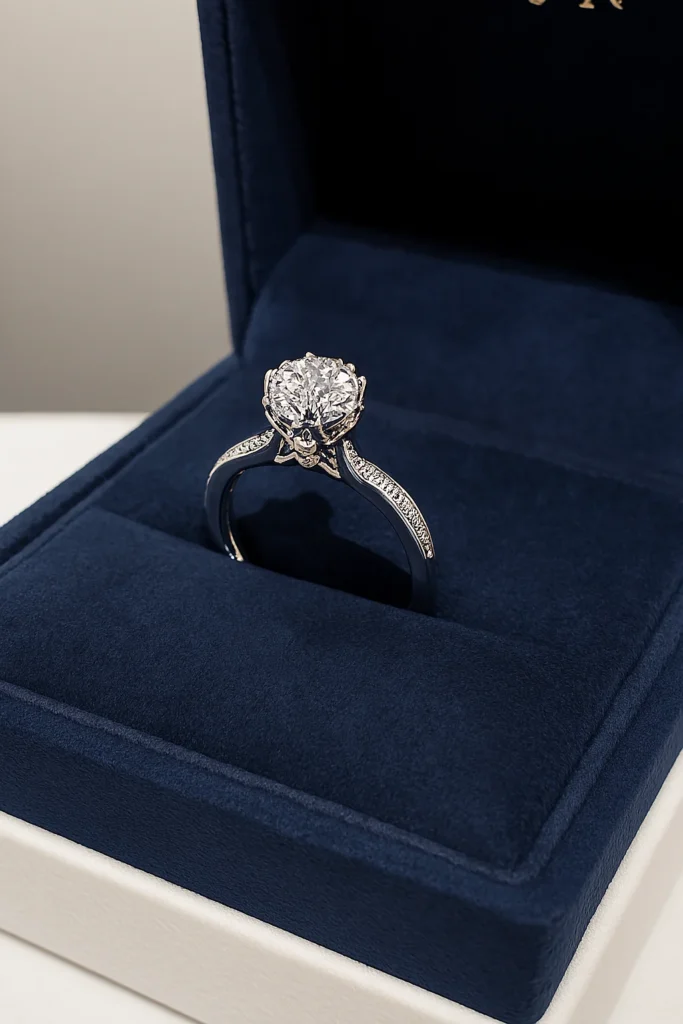
Wedding Rings and Cultural Traditions
Different cultures have unique customs regarding wedding rings:
- Eastern Orthodox: Rings are placed on the right hand.
- Jewish Weddings: A plain gold band is traditionally used.
- Indian Weddings: Women may wear toe rings and men might opt for simpler gold bands.
- Western Culture: Rings are usually worn on the left ring finger.
Trending Wedding Ring Styles for 2025
- Vintage-Inspired Bands – milgrain details, filigree, and art deco motifs
- Black Diamond Rings – bold and unconventional
- Twisted Bands – intertwined designs symbolizing unity
- Colored Gemstone Accents – sapphires, emeralds, or birthstones
- Minimalist Bands – thin, simple, and sleek
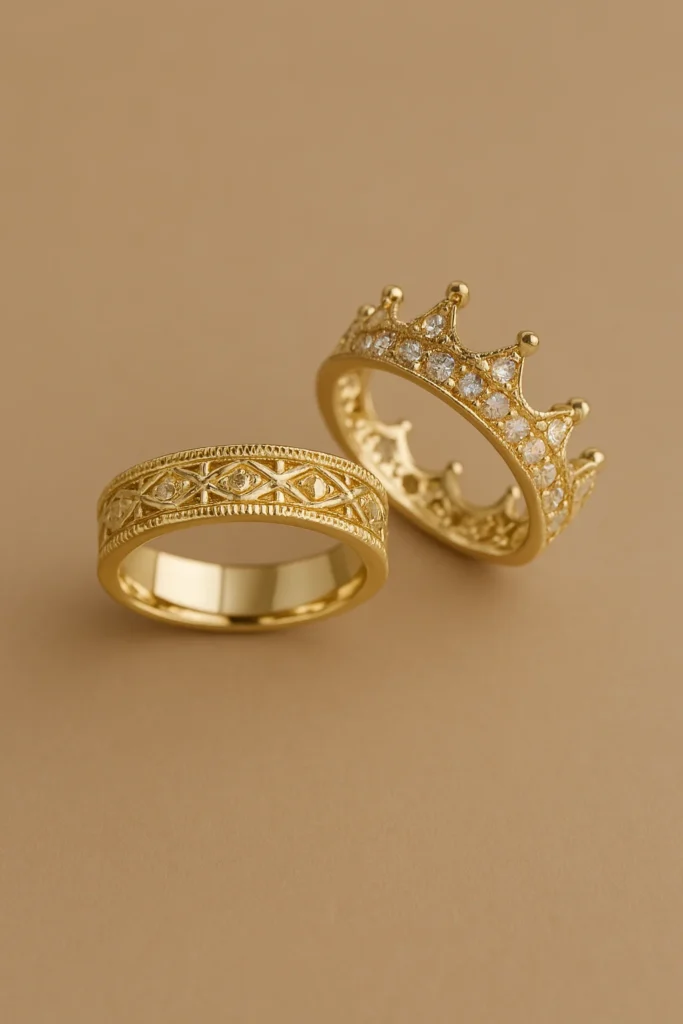
FAQs About Wedding Rings
Do both partners need to wear wedding rings?
It’s traditional, but not required. Some couples choose only one ring, or alternative symbols like tattoos or bracelets.
How much should we spend on wedding rings?
There’s no set rule. Spend what feels comfortable for your budget, factoring in material, stones, and personal preference.
Can we engrave anything inside our rings?
Yes! Common choices include names, dates, coordinates, religious symbols, or phrases like “Forever” or “My One & Only.”
